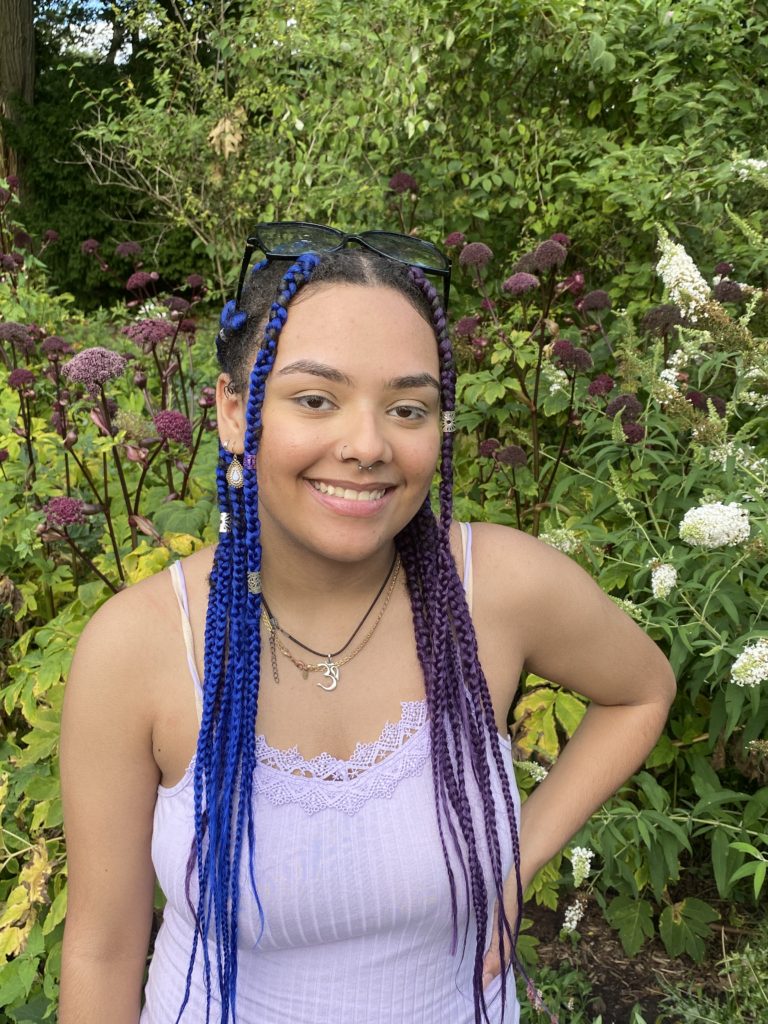I had the pleasure of hosting the best book club Ithaca College will ever see. My book club consisted of 9 people excluding myself, most of whom are a part of the opportunity program I am in along with some who are journalism majors like me. Within my book club we explored topics such as Race, Ethnicity, Education, Intersectionality, etc. The texts that I chose were Cornell and Hartmann’s Fixed or Fluid?: Alternative Views of Ethnicity and Race., W. E. B. Du Bois The Souls of Black Folk, Paulo Freire Pedagogy of the Oppressed, and Meizhu Lui’s Doubly Divided. My goal for my book club was to really engage in these themes because I think it’s really important to speak about things that directly affect people, such as race. Time and time again we see these themes come up in everyday life, whether it’s the news or in an academic setting. With such common recurrence, I feel it’s necessary for everyone to explore those things. In addition to that, I wanted to create an environment where we could have good intellectual conversations and really create a safe space. I believe I did just that and had a lot of fun as well.
I learned a lot doing this book club, but I think one of the biggest things I learned is that being open minded is very important. Although I know that these texts have legitimate answers to what certain ideas mean in the text, I found it really interesting how different people can have different interpretations of them. And when I say the “interpretation,” I mean how the text affects us and how we might apply it to our lives. In our meetings, members didn’t have too much trouble with actually understanding and comprehending the texts, and if they did, I encouraged other participants to help each other. Making sure everyone (including me) kept an open mind was key to our discussions about how we saw a text’s issues present in our own lives. A majority of my book club was POC, so it was necessary for me to keep an open mind about how these texts’ implications applied to many of their lives. If the ideals of the text or certain statements didn’t align with my experience or others in the book club, having that open mindedness was important. I consider myself a very outspoken person, so learning to hold back comments and encouraging others to just listen to others (rather than immediately respond) helped me maintain my larger goal of wanting to create a safe space just. I feel that that also helped with the participation of the group, because everyone was more than willing to speak about these themes of race, ethnicity, etc. Furthermore, being open minded created such amazing conversation and back and forth discussions. I enjoy seeing the back and forth discourse so much and it really made things fun for everyone. Fostering open mindedness allowed for that to happen because it kept the space safe for everyone and respectful of others opinions and thoughts.
The thing I found most challenging about being a leader was actually being a leader, funnily enough. The irony of this is that I tend to be that one person in a group who says “Oh, you do this”; “Want to do this?”; and just takes on that role of being a leader. So, when starting this book club, I didn’t imagine I’d have any challenges with it. But I found it challenging establishing the line between being a leader and being a participant in the actual book club. At times I did want to step out of my “leader role” and just keep participating in conversation. And obviously as a leader of a book club you are there to lead a discussion, so you can participate to an extent. But I noticed in my first meeting that I spoke a lot. There’s nothing wrong with that, but I felt that I could’ve done more to direct the conversation rather than answering my own questions about the texts that I had posed to the group. It was hard at first, but I eventually got better at it. I found it sometimes challenging when I wanted to counter something another person said, as though I was a participant, or even as a friend, since I know the majority of the people in my book club pretty well, as opposed to being in my leader role. For example, as mentioned previously, the majority of my book club was POC. When we had our meeting about W.E.B Dubois’ Souls Of Black Folk we discussed the topic of “double consciousness.” It’s the idea of two or more social identities intersecting each other to show who you are; Dubois explains how there’s the way we see ourselves and how others see us. I asked the question to my book club, “Have you ever experienced double consciousness? If so, explain? If not, why do you think that is?” One of my participants argued that he did not have a double consciousness and that he thought you just are what you are. Personally, it was hard for me to hear that, especially since he is a POC. It definitely turned some heads as well, but I allowed him to speak and really explain himself and why he felt that way. After listening to him, I encouraged others to share, which ended up leading to a great discussion that wasn’t an effort to change the way he thought. I did feel, however, that towards the end of the conversation it did change some of his thinking about the possibility that he had experienced double consciousness and he was more willing to explore it rather than flat out stating, “I never experienced nor have a double consciousness”. I found establishing that clear boundary between being a discussion leader and being a participant was really important to me.
Although being a leader was challenging, it benefitted me a lot. I overcame those challenges in the upcoming meetings. I really improved on being in that position of a leader by coming up with ways to continue the conversation or stir it to new questions. I also feel that I accomplished what I had intended for my group, creating that safe space, having an environment where it was fun learning together, having really good, meaningful conversations, and creating an active atmosphere together. To conclude, I enjoyed every moment of the book club. The ideas we spoke about definitely carried on into conversations and even got to change some people’s outlooks on everything! Such a powerful and humbling experience.

